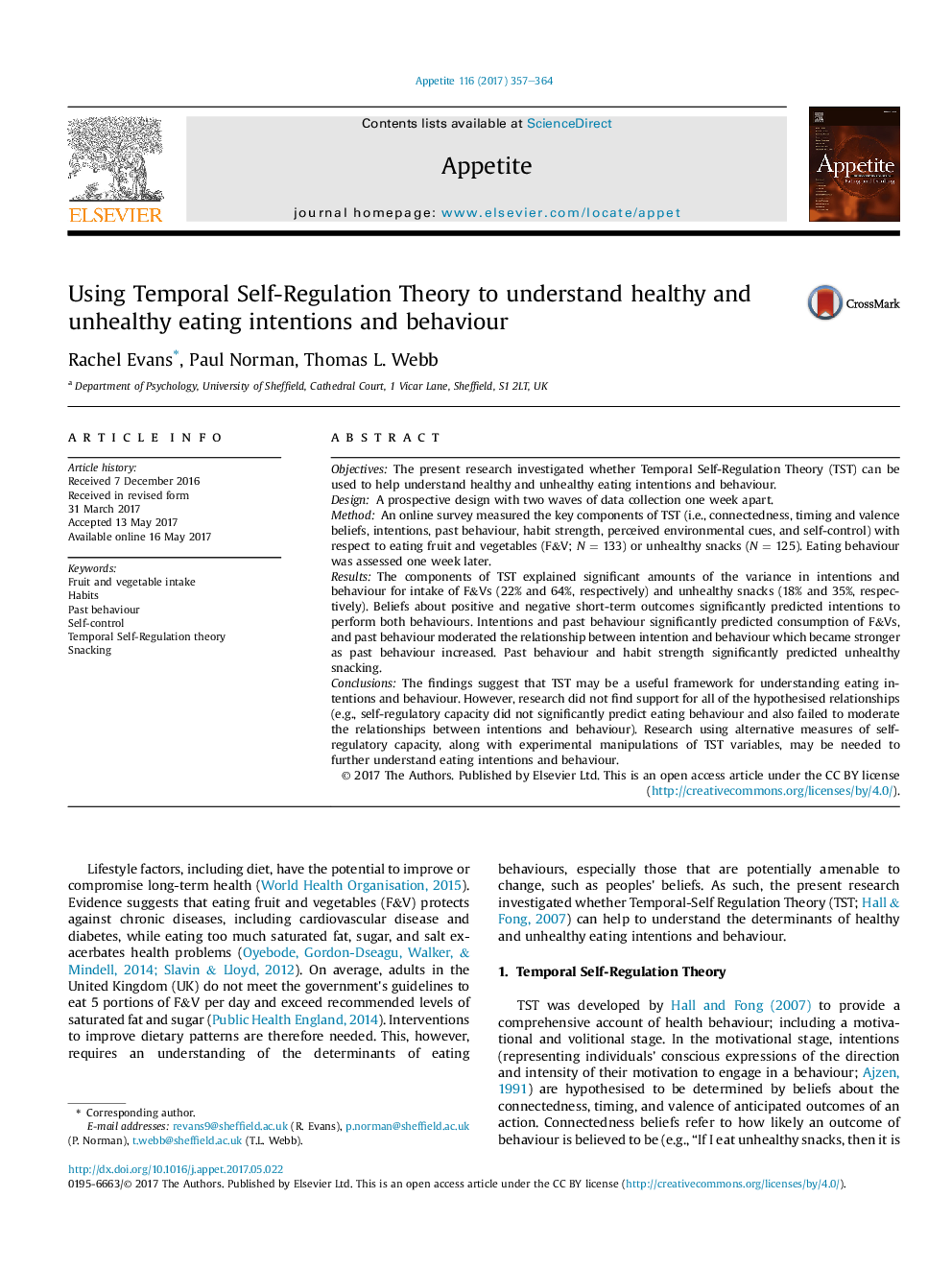| کد مقاله | کد نشریه | سال انتشار | مقاله انگلیسی | نسخه تمام متن |
|---|---|---|---|---|
| 5044016 | 1475364 | 2017 | 8 صفحه PDF | دانلود رایگان |

ObjectivesThe present research investigated whether Temporal Self-Regulation Theory (TST) can be used to help understand healthy and unhealthy eating intentions and behaviour.DesignA prospective design with two waves of data collection one week apart.MethodAn online survey measured the key components of TST (i.e., connectedness, timing and valence beliefs, intentions, past behaviour, habit strength, perceived environmental cues, and self-control) with respect to eating fruit and vegetables (F&V; NÂ =Â 133) or unhealthy snacks (NÂ =Â 125). Eating behaviour was assessed one week later.ResultsThe components of TST explained significant amounts of the variance in intentions and behaviour for intake of F&Vs (22% and 64%, respectively) and unhealthy snacks (18% and 35%, respectively). Beliefs about positive and negative short-term outcomes significantly predicted intentions to perform both behaviours. Intentions and past behaviour significantly predicted consumption of F&Vs, and past behaviour moderated the relationship between intention and behaviour which became stronger as past behaviour increased. Past behaviour and habit strength significantly predicted unhealthy snacking.ConclusionsThe findings suggest that TST may be a useful framework for understanding eating intentions and behaviour. However, research did not find support for all of the hypothesised relationships (e.g., self-regulatory capacity did not significantly predict eating behaviour and also failed to moderate the relationships between intentions and behaviour). Research using alternative measures of self-regulatory capacity, along with experimental manipulations of TST variables, may be needed to further understand eating intentions and behaviour.
Journal: Appetite - Volume 116, 1 September 2017, Pages 357-364